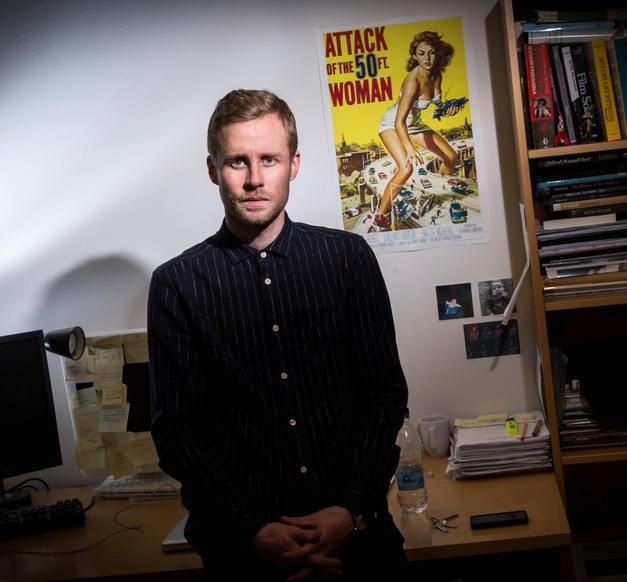Kjartan Már Ómarsson, Doctoral student at the Faculty of Icelandic and Comparative Cultural Studies
Baltasar Kormákur is without a doubt Iceland’s best known director, and he is also one of the most prolific. His debut, 101 Reykjavík, premiered at the beginning of the millennium and the years since have been eventful and productive for Baltasar. He has produced and directed almost twenty feature films, and has managed to carve out a name for himself in the Mecca of the movie industry, Hollywood.
Baltasar’s success is the inspiration for Kjartan Már Ómarsson’s doctoral study in Comparative Literature where he analyses the films of this renowned director. “The main emphasis of the study is on his narrative recreation of the Icelandic movie as it is defined in light of international cinematic trends. The theoretical basis come from genre studies and definitions of world cinema. I delve into the friction between foreign and domestic cultural trends in the cinematic reimagining of Baltasar,” Kjartan explains.
Kjartan Már Ómarsson
"Movies are no longer produced in a closed system, rather they are the products of varied social and cultural conditions. Baltasar’s movies are ideal to tackle these questions as to how cinematic culture deals with them.”

Björn Þór Vilhjálmsson, Assistant Professor of Cinema Studies at the University of Iceland had the idea for the study, which is partly a reaction to the lack of academic research on Icelandic movies, directors and cinematic culture in recent years. “A decade has passed since cinema studies bloomed with the books edited by Guðni Elísson and various publications in Icelandic – now it is time to continue this work,” says Kjartan. By studying Baltasar’s movies Kjartan hopes to shed light on the changes in Icelandic cinema in a new century. “When considering Icelandic film making in the 21st Century the increased multi-cultural tendency in Icelandic society opens up questions concerning the interplay of different cultural worlds. Movies are no longer produced in a closed system, rather they are the products of varied social and cultural conditions. Baltasar’s movies are ideal to tackle these questions as to how cinematic culture deals with them,” he says.
The study commenced in the autumn of 2016 and Kjartan presented the first conclusions at the conference Noir in the North in November. “The final goal is to publish a comprehensive and accessible book that will also be translated into English. It should be a useful background for further research, teaching and to export knowledge on Icelandic cinema,” Kjartan concludes.
Supervisor: Guðni Elísson, Professor at the Faculty of Icelandic and Comparative Cultural Studies.


